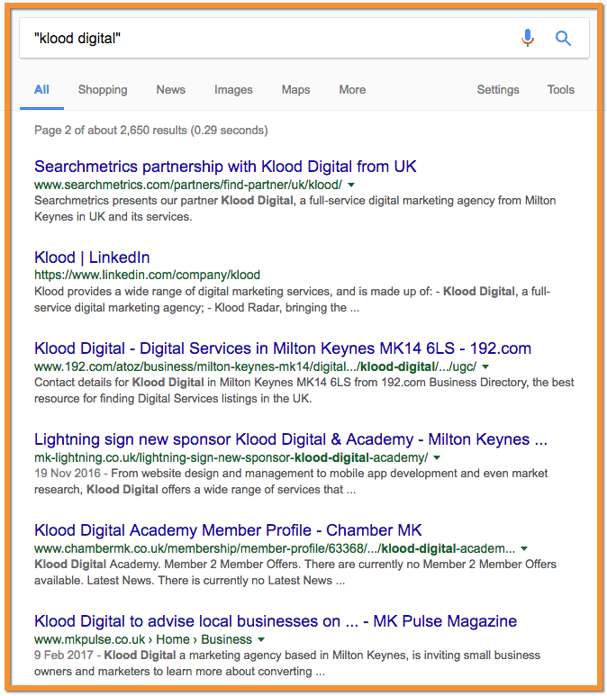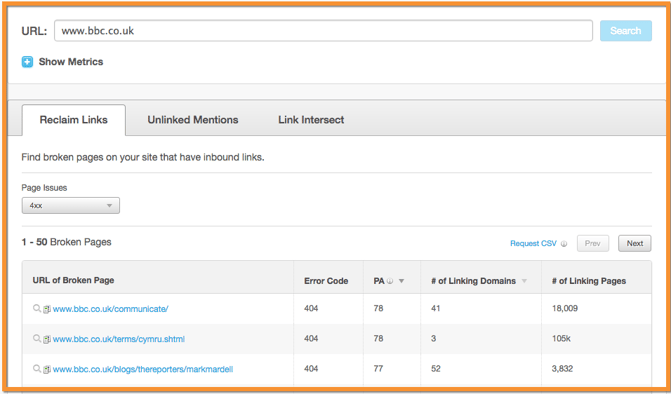6 Alternative Ways of Building Links Without Creating Content
6 Alternative Ways of Building Links Without Creating Content
Get weekly
HubSpot Updates
Off-page optimisation is a critical part of any SEO strategy, and is one of the many SEO services we offer.
We know as well as anyone that building links can be difficult. Managing outreach is a time-consuming activity to begin with, while the traditional tactic of creating content for other websites — such as guest posts, comment articles, infographics and more — can be equally resource intensive, particularly if you want to make something great and really leave a good impression.
But, there are also several ways to get links without creating content. These tactics also work well in support of a guest posting strategy, and enable you to expand the backlink profile of your website.
Let’s examine a few of these methods.
Monitoring mentions
The first method is to let others create the content for you! Simply keep track of when your brand is mentioned by others online, and then politely approach them for a link back to your site.At SpotDev, to monitor our mentions we use BuzzSumo, which tracks mentions of your brand, as well as helpfully confirms if the article has a link back to your domain or not. Another option is to trawl the search results manually, looking for results related to your brand.

You can also set up a brand alert, which will notify you whenever your brand (or whichever term you’re interested in, for example a specific campaign) is found in an article within the ‘News’ section of Google search. Simply browse to the news tab and click the below option.

There are some issues around this tactic, of course.
Firstly, the amount of conversations being had about your brand will vary greatly, and this impacts the number of links you’ll be able to get. Secondly, the content of the publications by others matters too — you don’t want to be approaching the author of an article that mentions your brand in a negative light for a link! Of course, being aware of that kind of conversation is important in its own right.
Broken link building
At its heart, broken link building revolves around finding ‘dead’ links on other websites, and then informing the owners so that they fix them and link to your site instead.There are a number of ways to do this, ranging all the way from simply keeping an eye out for broken links as you browse the web, to outright hunting down possible targets.
A more intensive strategy requires prospecting of dead pages that used keywords relevant to your topic, and that you have suitable content to replace them with. To do this, you could scrape the SERP’s for these key terms using a tool such as Scrapebox (not recommended, as Google may limit your use of search due to the spammy traffic), or scrape the results by hand.
Once you have the list of URLs, you need to browse these sites to find any pages with 4XX status codes that are still being externally linked to. You can use tools such as Screaming Frog or Moz’s Open Site Explorer as shown in the picture below. These will allow you to see the pages with 4XX status codes, as well as the number of pages that linked to that site.

You can then use the Wayback Machine to see how the page looked in the past, and see if you have any content that offers similar value. If you do, reach out to the sites that linked to the page, mention that they have a broken link, and explain the value of your content, so that hopefully they will replace the dead link with one to your site.
This is a great way to both improve user experience on the internet, as well as get links back to your site. Of course, this strategy works even better if you can create content to replace those broken pages!
Link reclamation
Link reclamation is hunting down broken links to your site. Start in Google Search Console and find the list of 404 pages that Google has crawled on your site. Fixing these links with 301 redirects is a simple way to pass on any link equity from linking domains to your site.Another area where your site might be losing out is when links to your site are spelled incorrectly. You can use the SEObook Keyword Typo tool to find some of the common typos that might be made for your site name. You can then look to buy up those domains and redirect them to your site, or use the Majestic Bulk Backlink Checker to find out if anyone is linking to those. If they are, it’s a great opportunity to reach out and get those links fixed!
Testimonials & reviews
One simple way of building links is to give reviews and testimonials to companies or industry contacts you’ve worked with. This gives them something valuable (a positive review of their services) and also incentivises them to link back to your site so they can show who is providing this positive review. There’s a great blog by Rand Fishkin on this subject, which shows a couple of great examples of how this can be done.Partnerships & sponsorships
Similarly to the above, if you have partnerships with other organisations, or you sponsor them, leverage that relationship to produce content together. If you’ve entered a partnership with another company, that’s an ideal event for them to report on, and to link back to you.Directories
An age-old tactic, but one that still has some merit, and also helps your Local SEO as well. Make sure that you have citations in valuable directories for your industry, as well as other important sites, such as Yelp. As with any directory submissions, make sure to check the quality of directory sites before you submit to them. You can use Mozbar or Open Site Explorer to do this.
These tactics can be a great way to get more links without needing to create new content, and provide new avenues by which you can build more links to your site.
Our content includes affiliate links. This means that we may receive a commission if you make a purchase through one of the links on our website. This will be at no cost to you and helps to fund the content creation work on our website.